The Rolling Stones‘ Beggars Banquet (50th Anniversary Edition) has been released by ABKCO on November 16. Recorded between March and July of 1968 at Olympic Sound Studios in London, Beggars Banquet includes such classic rock favorites as “Sympathy For the Devil,” “Street Fighting Man” and “Stray Cat Blues” among its songs. It was the first Stones album produced by Jimmy Miller, and marks the start of what is considered their most prolific album era. Beggars Banquet has a special place in the history of the band, as it is the final album completed with the original lineup of Mick Jagger, Keith Richards, Brian Jones, Bill Wyman and Charlie Watts.
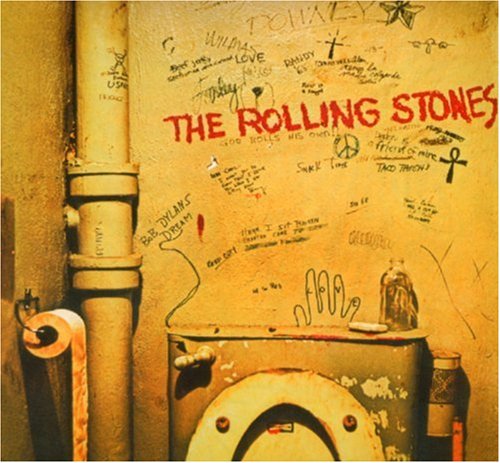
The “graffiti” cover
A limited edition vinyl package, from ABKCO’s Oct. 3 announcement, comes in a gatefold jacket, with a bonus 12” of “Sympathy For the Devil” in mono cut at 45rpm, backed with an etching of the original “toilet” cover. Also included is a replica of the rare Japanese bonus flexi-disc containing a phone interview with Jagger from 1968, a download code for the album plus interview. The landmark album has been newly mastered by Grammy Award® winning engineer Bob Ludwig and pressed on 180g vinyl.
On November 15, ABKCO revealed that it will also issue the title on Dec. 7 as a limited edition hybrid Super Audio CD. From the announcement: The SACD package itself is designed to look like a miniaturized replica of the 12” gatefold double-vinyl edition, sized to be a convenient 7” gatefold, and contain two hybrid SACDs, a flexi disc and expanded packaging elements exclusive to this edition. This bespoke packaging is manufactured in Japan and is of the highest quality to match the SACD audio.
Special elements of the package include: replica packshots of two Japanese 7” single picture sleeves (“Jumpin’ Jack Flash” and “Street Fighting Man”) and both versions of the Beggars Banquet sleeve art are included. This SACD set is a Japanese release, which will be imported into North America in a limited quantity.
Related: The Stones will be touring the U.S. in 2019
The Nov. 16 vinyl edition’s gatefold sleeve features the originally banned “graffiti” artwork, which is contained inside an outer case depicting the “invitation” sleeve.
Watch the lyric video for “Stray Cat Blues”
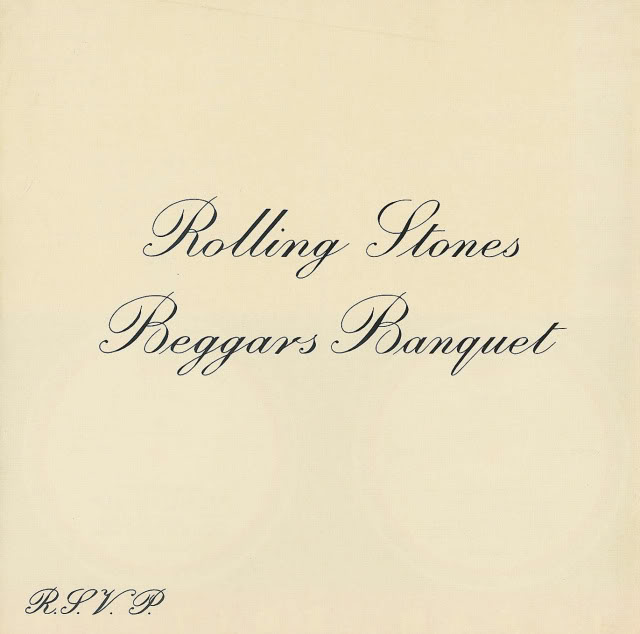 The original intended album cover art for Beggars Banquet was initially rejected both by London Records, their U.S. label as well as Decca, their U.K. label. The Michael Vosse photograph of a vandalized restroom wall (Jagger and Richards provided the graffiti, the restroom was inside a Porsche dealership) was deemed offensive, possibly because the top of an open toilet is captured in the shot. The replacement cover was simply the band name and album title written in the style of a wedding invitation and remained that way for several years before the intended bathroom photo art was no longer perceived as offensive, and finally gained its rightful place on the cover.
The original intended album cover art for Beggars Banquet was initially rejected both by London Records, their U.S. label as well as Decca, their U.K. label. The Michael Vosse photograph of a vandalized restroom wall (Jagger and Richards provided the graffiti, the restroom was inside a Porsche dealership) was deemed offensive, possibly because the top of an open toilet is captured in the shot. The replacement cover was simply the band name and album title written in the style of a wedding invitation and remained that way for several years before the intended bathroom photo art was no longer perceived as offensive, and finally gained its rightful place on the cover.
Beggars Banquet was released on December 6, 1968, ultimately reaching #3 in the U.K. and #5 in the U.S. Besides the five members of the band, the album prominently featured Nicky Hopkins on piano.
The album’s most well known song, “Sympathy For the Devil,” was written mainly by Jagger after Marianne Faithfull gave him a copy of Mikhail Bulgakov’s novel The Master and Margarita. The story follows the devil as he visits Stalin-era Soviet Union. Originally intended to be played in a folk style, Richards suggested changing the tempo and adding percussion, turning the rhythm into a samba.
Watch the lyric video for “Sympathy For the Devil”
The album’s release was preceded by the politically charged “Street Fighting Man” in August 1968.
Watch a newly released video for “Street Fighting Man”
Related: When the Stones threw a Beggars Banquet release party
Variety also reports that ABKCO will reissue a 50th Anniversary edition in 2019 of the Rolling Stones’ Rock and Roll Circus in a variety of formats. The special, including performances by the Stones, The Who, Jethro Tull, Marianne Faithfull, and John Lennon leading a band with Eric Clapton, Keith Richards and Mitch Mitchell, was taped in December 1968. It was originally intended to be broadcast by the BBC but the Stones rejected it at the time. It has since been made available. Best Classic Bands saw a newly mastered print of the new release and it’s stunning.

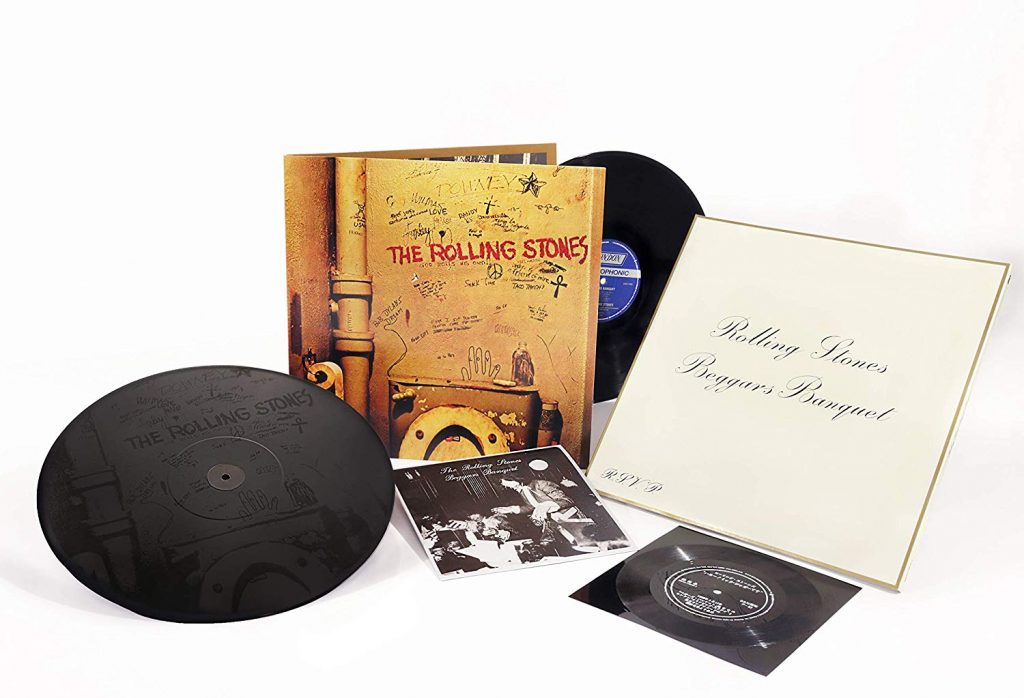



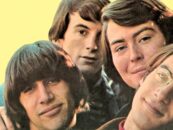
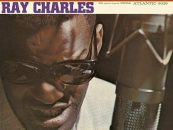

1 Comment so far
Jump into a conversationThe song Street Fighting Man is not politically charged. Coming from The Stones, it is a joke.